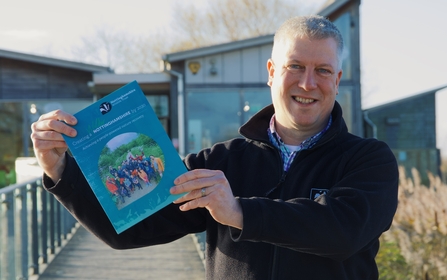Just days after highlighting the threat posed to the county’s wildlife and landscape by the Government’s decision to lift the moratorium on fracking, Nottinghamshire Wildlife Trust, the county’s largest locally based environmental charity, has spoken of its anger at further measures it believes could scupper the prospects for nature’s recovery and undermine people’s quality of life.
The Retained EU Law Bill – introduced into the House of Commons by Business Secretary, Jacob Rees-Mogg on Thursday 22nd September – did not generate the same level of headlines as Friday’s ‘mini budget’. However, the Wildlife Trust believes that plans to reform and revoke hundreds of laws that have their origins in policies from the European Union could seriously undermine the Government’s commitments to restoring nature and hamper, rather than encourage, economic growth.
Nottinghamshire Wildlife Trust fears that the ideological drive to unpick these laws threatens its ambitions to restore nature across the county and to secure wilder lives for communities. It is also believes that rather unleashing economic growth, the measures could unleash environmental impacts that stifle the transition to a successful green economy and damage people’s quality of life.

